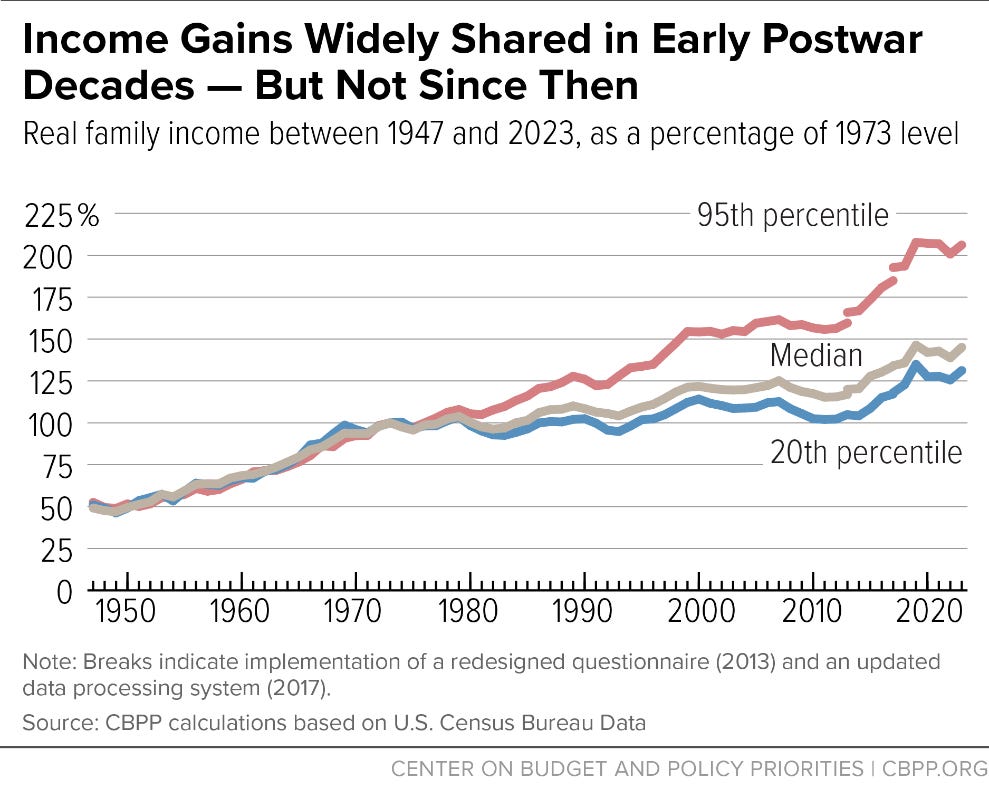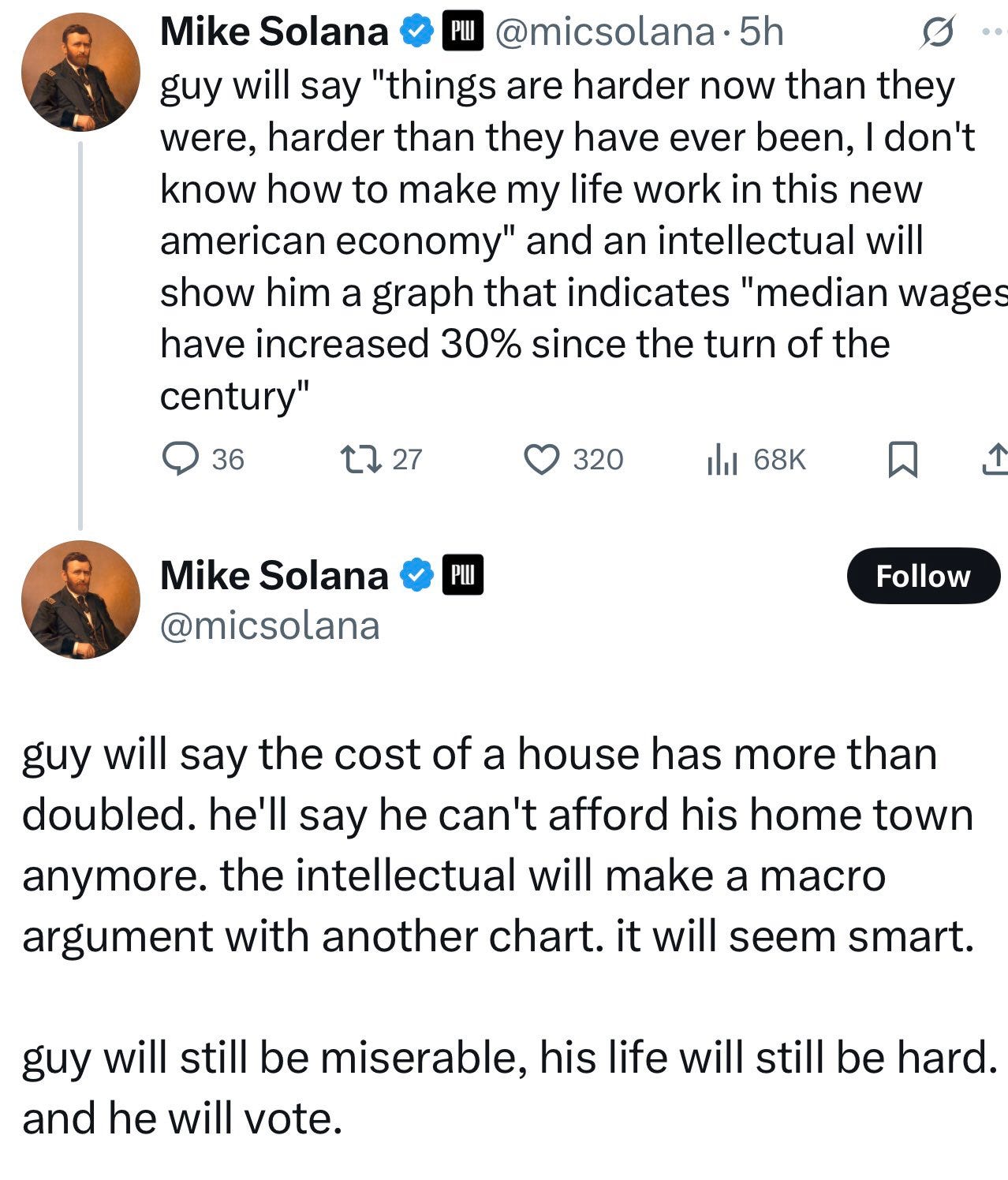Trump on how he makes decisions.
“Instinctively, more than anything else,” he told reporters this past week. “You almost can’t take a pencil to paper, it’s really more of an instinct than anything else.”
This is an insane thing to hear from the President. But he’s not the only one doing it. It turns out that evidence-based language is on the decline among all of Congress since the mid-1970s.
Basically, researchers looked at over 8 million congressional speech transcripts between 1879 and 2022. They then look for evidence-based keywords like fact and proof and intuition-based keywords like guess and believe. Finally, they use some fancy schmancy calculations to determine if the speech relies more on evidence or intuition, which they call the EMI score. The higher the EMI, the more the speech used evidence-based language.
Unfortunately, as you can see, evidence is on the decline in both parties.
The authors attribute this trend to four different factors:
Polarization. Basically, the more polarized the population is, the more politicians feel the need to feed into it with intuition-based language, which increases polarization, so on and so forth.
Congressional rules that limit the amount of time each member can speak.
Presidents over-using executive actions, which limits Congress’s sphere of influence and possibly making them feel like they need to speak a bit more flamboyantly.
Increased media coverage, especially on Twitter/X.
The most interesting factor to me is polarization and the related finding that the result of less evidence-based language is greater income inequality.
We examine the decline in EMI in relation to three outcome variables that are indicative of democratic health and find a concerning association in all cases: a decline in evidence-based language is associated with increasing polarization and increasing income inequality but decreased congressional productivity. The temporal sequence of those trends differs between variables. For polarization, the strongest association with EMI is greatest at lag zero, and we find that polarization is a significant predictor of EMI, but not vice versa. This suggests that polarization and politicians’ rhetoric evolve in tandem. By contrast, EMI precedes shifts in income inequality, such that a stronger emphasis on evidence-based reasoning is associated with subsequent reduction in income inequality whereas greater reliance on intuition seems to be associated with the persistence of existing social disparities. This finding aligns with existing research on language and social inequality31, which underscores how language patterns have consequences for understanding social issues and may either promote or inhibit necessary changes. Intuition-based language may help to explain the relationship between polarization and inequality, as it is linked to legislative inaction and can hinder policies that address income inequality through redistribution18
So, polarization doesn’t cause less evidence-based language, but less evidence-based language does cause income inequality, which fuels more polarization, which does cause less evidence-based language. It all seems very circular, but it does provide an answer to the age-old question: what causes polarization?
If you look at the above chart, EMI took a nosedive in the mid-70s, which also happened to be a rough economic time. It also was when income inequality started to accelerate.
People noticed this and turned populist. This led to the natural results of populism: polarization, dumb people getting elected, and an increased appetite for vibes over evidence. Hence, EMI scores continued marching down, income inequality kept going up, populism and polarization kept gaining strength with an assist from the media and social media, so more vibe-based dumb people got elected, and, eventually, Donald Trump.
Basically,
How do we get out of this doom loop? Simple: things need to get bad enough so that people ditch their populist ways. The remarkable thing is, 50 years later, this still hasn’t happened yet. It turns out the system we had in place actually works pretty well, well enough to withstand a whole bunch of idiocy. But, if we continue down this path, failure is certain. It might come from Trump, or it might come from Vance or AOC. The timing is uncertain; the result is not. And when the inevitable does happen, people will become receptive to good old-fashioned evidence-based classic liberalism.
In the meantime, it would help us all to acknowledge that Congress actually does its job well, income inequality isn’t a big deal, cult leaders don’t make for great politicians, and Econ 101 is actually pretty damn important.
EDIT 5/13:
Mike Solana of Pirate Wires put out the absolutely perfect post encapsulating why vibe governing is a thing right after I published this.
I’m sorry, but how you “feel” doesn’t and shouldn’t matter more than the facts.







